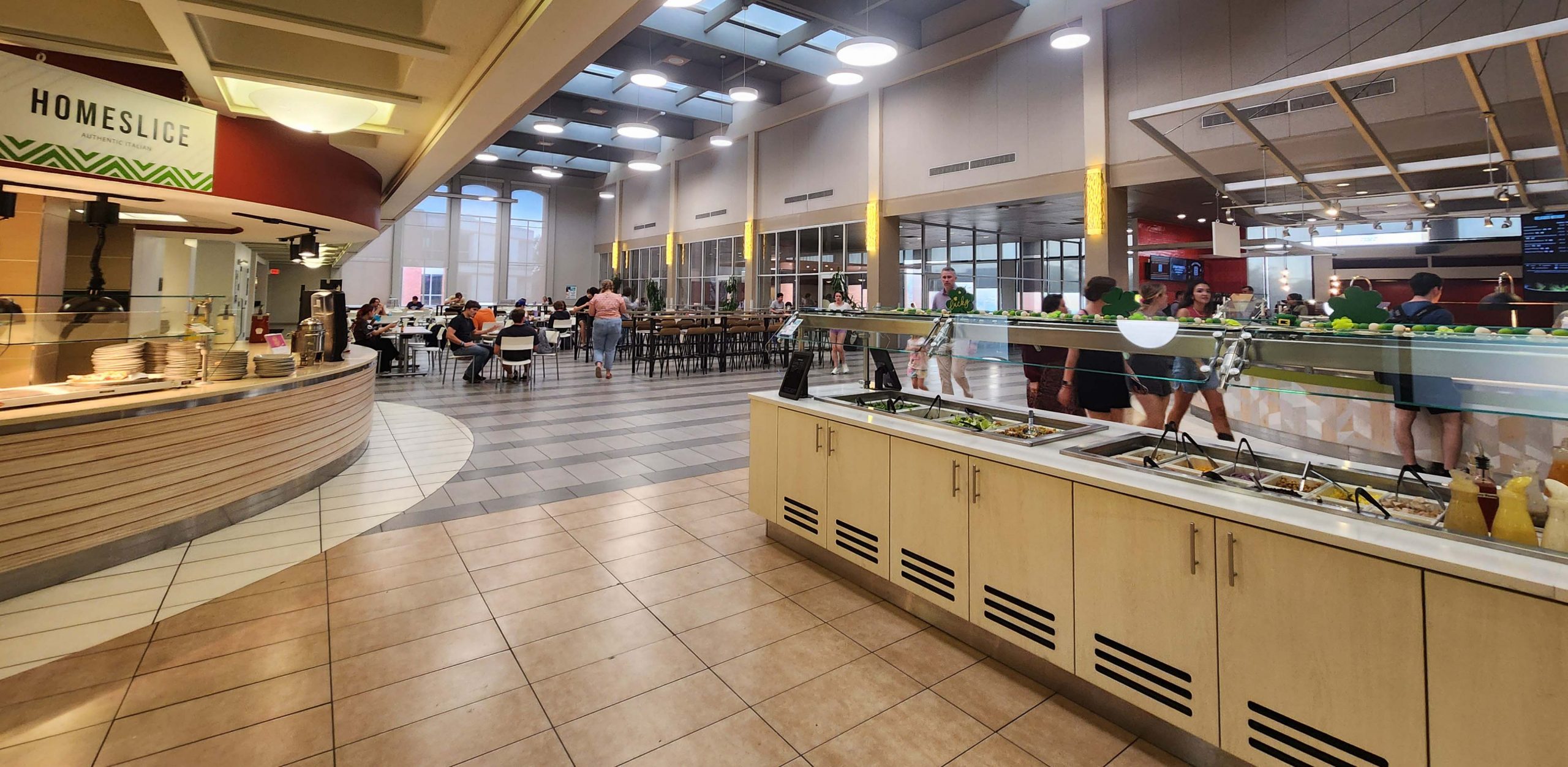
The philosophy ‘Clients for life’ is central to the approach that FCSI Senior Associate Sojo Alex, principal, Envision Strategies, and her team adapt when working with any client, big, small or in between.
They applied that same philosophy to their work with San Antonio, Texas-based Trinity University, a previous client of Envision Strategies’ that contracted the firm in 2022 for a complete dining assessment and operator RFP process for the school’s foodservice and dining programs at the school.
The previous contract foodservice operator had been with the university for 20-plus years; this was a new process to potentially search for a new one — one that Alex refers to as “supplier sourcing.”
Dining assessment and vision
The first step in the RFP plan was getting all of the stakeholders together to assess the current state of university dining and determine the vision for the future. Alex met several times with the Dining Advisory Committee, which is comprised of Diana Heeren, associate vice president of finance at Trinity University, who led the vision for the foodservice programming updates, along with other university administrators from the student life, admissions, athletics and events departments as well as two students.
“The biggest challenge was just balancing all the priorities and figuring out how to align the various missions,” says Alex. Some of those priorities centered on financial goals as well as on sustainability, health and wellness, social/environmental justice, food quality and customer service and student employment and engagement.
Search for a true partner
Part of Envision Strategies’ scope of work was then to assist the university in writing a full Request for Proposal (RFP) to open up to interested operators.
A selection committee was assembled to assess the incoming proposals and see how they measured up to the university’s vision and financial goals. Six foodservice operators (or suppliers, as Alex calls them) applied to be a part of the proposal process.
“We brought them into a Zoom meeting to introduce them to the stakeholders and share their vision for university dining,” says Alex, noting that on-campus tours were offered as well. “The university was looking for a true partner that could help them grow, not just an operator in the basic sense,” Alex says.
After the proposals came in, Alex’s team documented how they measured up to the university’s vision and presented the findings to the selection committee. The four finalists were invited back to campus for interviews with the selection committee. Ultimately, Chartwells was chosen as the contracted foodservice operator (a different operator than the previous one).
Chartwells signed the contract in January 2023 and the transition began that May. “Trinity asked us to continue working with them on the transition,” says Alex, a process that involved transferring financials, equipment licenses and more for a few months.
Quality assurance and auditing
As part of that “clients for life” philosophy, Envision Strategies recently launched Envision 360, a tech-based auditing and quality assurance program for consulting clients to help ensure goals are still being met long after the foodservice programs are developed and built.
An annual subscription to Envision 360 (which Trinity has) essentially buys clients access to a dashboard where they can see all of their KPI, financial and auditing data — even performance and sustainability goals — and run reports and track trends to identify where things are working and where they’re not. The dashboard can also house photos, videos and other “proof” of performance.
Concluding, Alex says that Envision 360 has been “a great way to stay connected with Trinity and not just help them sign a contract and walk away, “For all our clients, we want to make sure their dining programs are successful over the long haul; Trinity is a good example of our ‘client for life’ mentality.”
Amelia Levin
